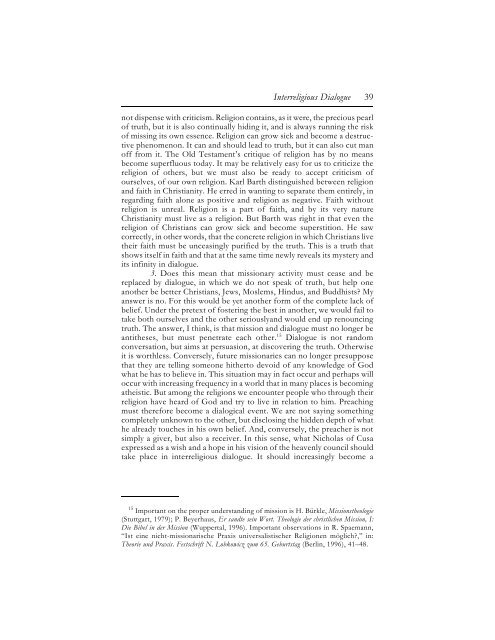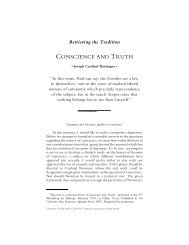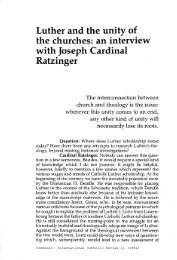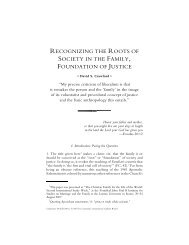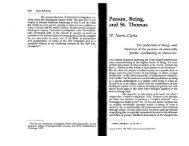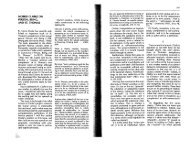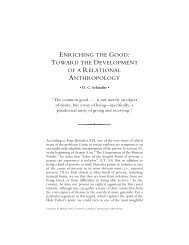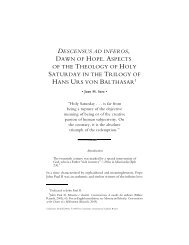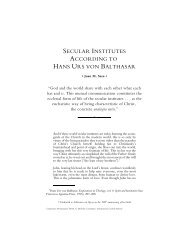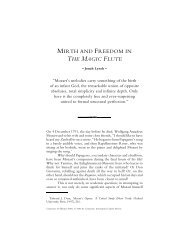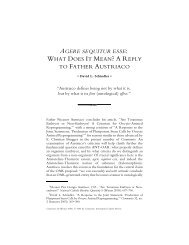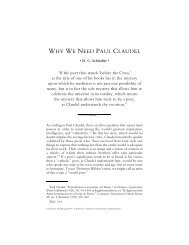Interreligious Dialogue and Jewish-Christian Relations - Communio
Interreligious Dialogue and Jewish-Christian Relations - Communio
Interreligious Dialogue and Jewish-Christian Relations - Communio
You also want an ePaper? Increase the reach of your titles
YUMPU automatically turns print PDFs into web optimized ePapers that Google loves.
<strong>Interreligious</strong> <strong>Dialogue</strong> 39<br />
not dispense with criticism. Religion contains, as it were, the precious pearl<br />
of truth, but it is also continually hiding it, <strong>and</strong> is always running the risk<br />
of missing its own essence. Religion can grow sick <strong>and</strong> become a destructive<br />
phenomenon. It can <strong>and</strong> should lead to truth, but it can also cut man<br />
off from it. The Old Testament’s critique of religion has by no means<br />
become superfluous today. It may be relatively easy for us to criticize the<br />
religion of others, but we must also be ready to accept criticism of<br />
ourselves, of our own religion. Karl Barth distinguished between religion<br />
<strong>and</strong> faith in <strong>Christian</strong>ity. He erred in wanting to separate them entirely, in<br />
regarding faith alone as positive <strong>and</strong> religion as negative. Faith without<br />
religion is unreal. Religion is a part of faith, <strong>and</strong> by its very nature<br />
<strong>Christian</strong>ity must live as a religion. But Barth was right in that even the<br />
religion of <strong>Christian</strong>s can grow sick <strong>and</strong> become superstition. He saw<br />
correctly, in other words, that the concrete religion in which <strong>Christian</strong>s live<br />
their faith must be unceasingly purified by the truth. This is a truth that<br />
shows itself in faith <strong>and</strong> that at the same time newly reveals its mystery <strong>and</strong><br />
its infinity in dialogue.<br />
3. Does this mean that missionary activity must cease <strong>and</strong> be<br />
replaced by dialogue, in which we do not speak of truth, but help one<br />
another be better <strong>Christian</strong>s, Jews, Moslems, Hindus, <strong>and</strong> Buddhists My<br />
answer is no. For this would be yet another form of the complete lack of<br />
belief. Under the pretext of fostering the best in another, we would fail to<br />
take both ourselves <strong>and</strong> the other seriously<strong>and</strong> would end up renouncing<br />
truth. The answer, I think, is that mission <strong>and</strong> dialogue must no longer be<br />
antitheses, but must penetrate each other. 15 <strong>Dialogue</strong> is not r<strong>and</strong>om<br />
conversation, but aims at persuasion, at discovering the truth. Otherwise<br />
it is worthless. Conversely, future missionaries can no longer presuppose<br />
that they are telling someone hitherto devoid of any knowledge of God<br />
what he has to believe in. This situation may in fact occur <strong>and</strong> perhaps will<br />
occur with increasing frequency in a world that in many places is becoming<br />
atheistic. But among the religions we encounter people who through their<br />
religion have heard of God <strong>and</strong> try to live in relation to him. Preaching<br />
must therefore become a dialogical event. We are not saying something<br />
completely unknown to the other, but disclosing the hidden depth of what<br />
he already touches in his own belief. And, conversely, the preacher is not<br />
simply a giver, but also a receiver. In this sense, what Nicholas of Cusa<br />
expressed as a wish <strong>and</strong> a hope in his vision of the heavenly council should<br />
take place in interreligious dialogue. It should increasingly become a<br />
15 Important on the proper underst<strong>and</strong>ing of mission is H. Bürkle, Missionstheologie<br />
(Stuttgart, 1979); P. Beyerhaus, Er s<strong>and</strong>te sein Wort. Theologie der christlichen Mission, I:<br />
Die Bibel in der Mission (Wuppertal, 1996). Important observations in R. Spaemann,<br />
“Ist eine nicht-missionarische Praxis universalistischer Religionen möglich,” in:<br />
Theorie und Praxis. Festschrift N. Lobkowicz zum 65. Geburtstag (Berlin, 1996), 41–48.


